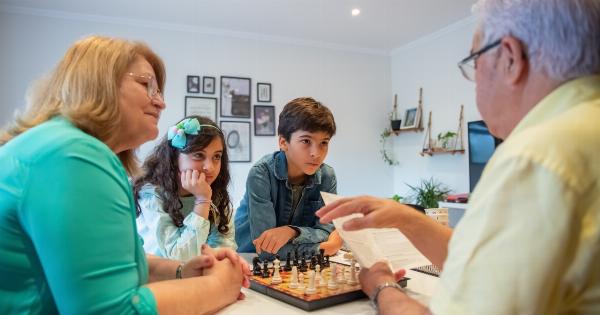As a parent, it is natural to be concerned about the friends your child chooses. The company they keep can greatly impact their social development and overall well-being. Therefore, it is crucial to get to know your child’s friends better.
By doing so, you can have a better understanding of the people who influence your child’s life and ensure their safety and happiness. This article will provide you with guidance on how to get to know your child’s friends better in a respectful and effective manner.
1. Communication is Key
One of the most important steps in getting to know your child’s friends is establishing open lines of communication. Encourage your child to talk about their friendships, and be an attentive listener.
Create a safe space for them to share their experiences, concerns, and joys related to their friends. By communicating with your child, you can gain valuable insights into their friendships and the type of individuals they choose to spend their time with.
2. Welcome Them Into Your Home
Inviting your child’s friends into your home can provide a wonderful opportunity to get to know them better. Create an inviting and comfortable environment where your child and their friends can bond and hang out.
This will allow you to observe their interactions and get a sense of their personalities. By opening your home to their friends, you not only create a positive and inclusive atmosphere but also show your child that you are interested in their social life.
3. Arrange Outings or Activities
Organizing outings or activities with your child’s friends is another excellent way to strengthen your bond and understanding. Plan a trip to a park, museum, or even a movie night at home.
Spending time together outside of school or regular social settings can provide a different perspective and encourage friendship building. Moreover, it allows you to engage in casual conversations and discover shared interests, which can facilitate deeper connections.
4. Attend School Events
Attending your child’s school events is not only a great way to support their academic endeavors but also an opportunity to meet their friends and their friends’ parents.
Whether it’s a school play, sports game, or parent-teacher meeting, make an effort to participate actively in school life. By being present, you can initiate conversations with other parents, learn more about your child’s friends, and potentially establish future parent-child interactions.
5. Monitor Digital Interactions
In today’s digital age, it is essential to pay attention to your child’s online interactions with friends. Take an interest in the social media platforms they use and encourage them to share experiences with you.
However, ensure that you respect their privacy and avoid excessive monitoring. The goal is to be aware of any potential risks or negative influences while maintaining trust and open communication with your child.
6. Communicate with Other Parents
Reach out to the parents of your child’s friends and initiate conversations about their children’s friendships.
Building a network with other parents allows you to exchange insights, concerns, and experiences regarding your children’s relationships. By sharing information and concerns, you can work collaboratively to ensure the well-being of all the children involved.
7. Trust Your Instincts
While it’s essential to foster trust and independence in your child’s social life, it is equally crucial to trust your own instincts as a parent.
If something feels off or you have concerns about a particular friendship, it is essential to address them. Trusting your instincts and taking appropriate actions can help protect your child from potential harm or negative influences.
8. Be a Positive Role Model
Your influence as a parent is significant, and being a positive role model can greatly impact your child’s choice of friends. Demonstrate qualities such as kindness, empathy, respect, and inclusivity in your own friendships.
By doing so, you provide your child with a model of healthy relationships and encourage them to seek friends who embody similar values.
9. Teach and Promote Boundaries
Teaching your child about personal boundaries and promoting their importance can help them navigate their friendships more effectively.
Encourage them to have open conversations about their boundaries and rights, as well as the importance of respecting those of others. By developing healthy boundaries, your child can build more positive and enriching friendships.
10. Respect Individual Differences
It’s crucial to understand that your child’s friends may come from diverse backgrounds, with different values, beliefs, and cultural practices.
Encourage your child to appreciate and respect their friends’ individual differences, fostering a sense of inclusivity and acceptance. By embracing diversity, your child can develop a broader perspective and cultivate friendships that enrich their lives.
Conclusion
Getting to know your child’s friends is an integral part of their upbringing and plays a crucial role in their social development.
By establishing open lines of communication, welcoming their friends into your home, organizing outings, and attending school events, you can create opportunities for deeper connections and gain insights into your child’s friendships. It’s essential to trust your instincts, communicate with other parents, and be a positive role model while fostering boundaries and respect for individual differences.
By actively engaging in your child’s social life, you can ensure their well-being and help them build friendships that positively influence their lives.






























